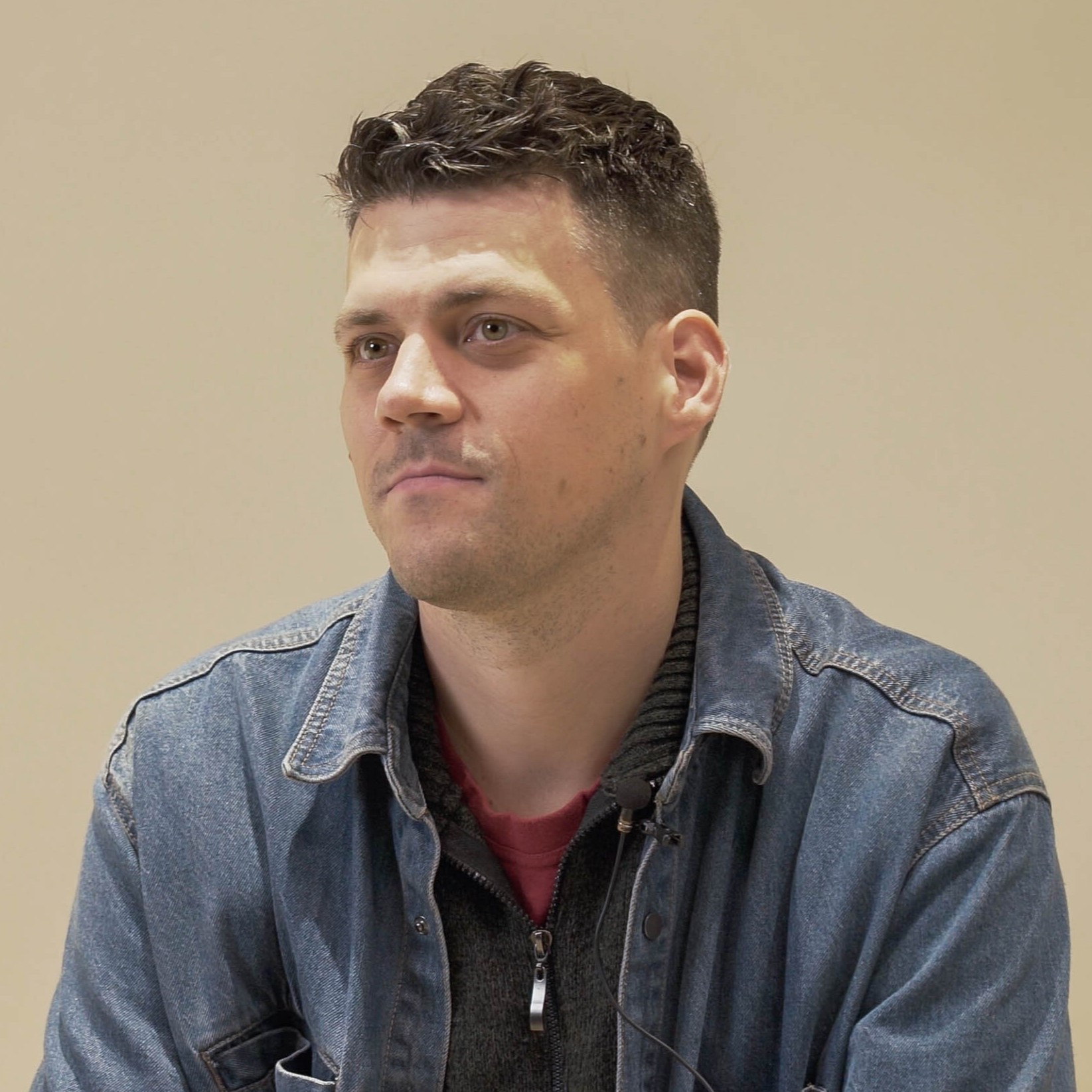[Herald Interview] Making glitz without glamour
'No Budget' filmmaker screens feature in Seoul
By Kevin Lee SelzerPublished : Sept. 29, 2016 - 16:51
Director Tyler Rubenfeld traveled from New York City to Seoul to present his debut feature film in competition at a recent film festival. Noteworthy was that he made the trip to compete in the “No Budget” category -- the 64-minute film’s budget came to just $4,000.
“No-budget filmmaking is just a series of burned bridges,” Rubenfeld said after the screening of his psychological drama “Wake Me When I Leave” at the Korea International Expat Film Festival, held in Seoul from Sept. 9-11. The second edition of the festival featured 45 short and feature films from 18 countries, with 23 making their world premieres.
“Wake Me When I Leave” revolves around Jill, who lies in bed slipping between reality and fantasy, consciousness and dreaming. While intermittent shots of hazy lights become clearer throughout, a string of memories -- real or false -- both suggests a narrative and confuses the audience and Jill alike, until it becomes uncertain which reality she lives in.
“No-budget filmmaking is just a series of burned bridges,” Rubenfeld said after the screening of his psychological drama “Wake Me When I Leave” at the Korea International Expat Film Festival, held in Seoul from Sept. 9-11. The second edition of the festival featured 45 short and feature films from 18 countries, with 23 making their world premieres.
“Wake Me When I Leave” revolves around Jill, who lies in bed slipping between reality and fantasy, consciousness and dreaming. While intermittent shots of hazy lights become clearer throughout, a string of memories -- real or false -- both suggests a narrative and confuses the audience and Jill alike, until it becomes uncertain which reality she lives in.

Talking about what drove him in writing and directing the film, Rubenfeld said some of it was plot, but about 70 percent of it was imagery. “Two things you can indulge yourself in: drug trips and dream sequences,” the director explained.
The movie uses the dream sequences to explore the protagonist’s trust in her relationship with her boyfriend Todd -- sleeping peacefully next to her -- as well as the confusion of how we end up where we find ourselves in life.
“It’s a movie people can watch and not necessarily understand everything, but retain something,” Rubenfeld commented.
Sitting down with The Korea Herald at a coffeehouse in Seoul the morning after his first screening, Rubenfeld backed off his previous comment of no-budget filmmaking being about burning bridges. “It takes finesse. It is about imposing on people a lot. We’re working in friends’ apartments and moving things around in their living room, having people there for long hours.”
“That is one of the biggest challenges,” he emphasized, “trying to see imposing on people as an essential part of the process.”
Keeping the budget so low means not only imposing on friends, but borrowing equipment and using cheaper alternatives, the director said, adding the film was shot with the Canon 5D DSLR camera.

“It’s not as limiting as people would initially think,” Rubenfeld said, reasoning that filmmaking with no budget also means he need not think much of the paying audience or commercial viability. “I think it’s just the one aspect of life where being selfish is good -- making art.”
“There’s such a surplus of no-budget, independent films ... it’s hard to think about career goals when you’re making these films,” he said. “You make one and then you make another that’s slightly bigger, then another that’s slightly bigger. You work up to making bigger and bigger films.”
One goal supersedes all others, according to Rubenfeld, “What it’s all about in the end is trying to find some sort of emotional truth in these scenes.”
To see the director’s short films and a trailer for “Wake Me When I Leave,” visit www.vimeo.com/tylerrubenfeld.
By Kevin Lee Selzer (klselzer@heraldcorp.com)







![[Weekender] Korea's traditional sauce culture gains global recognition](http://res.heraldm.com/phpwas/restmb_idxmake.php?idx=644&simg=/content/image/2024/11/21/20241121050153_0.jpg&u=20241123224317)









![[More than APT] Residents, architects together design homes](http://res.heraldm.com/phpwas/restmb_idxmake.php?idx=652&simg=/content/image/2024/11/24/20241124050036_0.jpg&u=)
